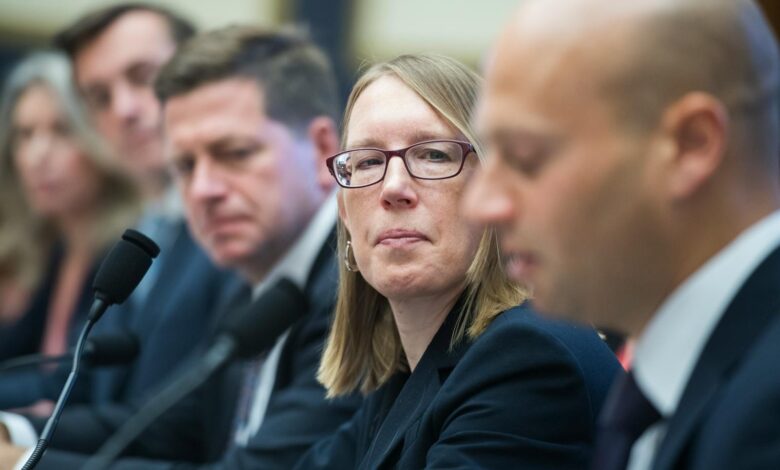What the new SEC crypto task force actually means for the industry

The Securities and Exchange Commission launched a crypto task force on January 21 dedicated to ensuring crypto businesses can operate without fear of punishment, signaling a rosier outlook for the industry at large, and sending coin prices, including bitcoin, $TRUMP and $MELANIA, higher in the immediate aftermath of the news.
The formation of a crypto-specific task force represents a sea change, with Republican commissioners Mark Uyeda and Hester Peirce as the top brass leading the initiative. The crypto-friendly SEC pair have pushed back against the agency’s crackdown of the past few years and voted to approve spot bitcoin ETFs.
Peirce, or “Crypto Mom” to the industry, will helm the new crypto task force, and is an appealing leader for those who champion free-market capitalism. She’s embraced her nickname but also has described her leadership style as “free-range” less helicopter. The two other SEC staffers named to the task force were most recently advisors to Peirce and Uyeda.
While the SEC is independent of the US federal government, President Trump’s public support appears to be empowering the agency to pivot from former SEC Chair Gary Gensler’s legacy treatment of crypto companies described by the industry as “regulation by enforcement.”
A more relaxed regulatory environment could enable crypto companies to pursue initial public offerings previously put on hold during Gensler’s reign. Legal battles catalyzed by enforcement action could end quietly. Undesirable guidance on crypto accounting, or “SAB 121,” could be rescinded. At least, that’s the hope.
When Sherwood asked about the crypto task force’s priorities, an SEC spokesperson pointed to the press release and declined to comment.
Kristin Smith, CEO of the Blockchain Association, a crypto advocacy group, lauded the appointment of Commissioner Peirce to the crypto task force, emphasizing “the need to create a regulatory structure that treats crypto as something we should grow rather than punish.”
While the industry awaits an official executive order asserting Trump’s pro-crypto stance, the first days of President Trump’s second term have been generally positive for crypto. Caroline Pham, who has been vocally supportive of the industry, was named as the interim chair of the Commodity Futures Trading Commission, the industry’s other regulator.
Smith told Sherwood News that the shift in tone, “going from the most hostile administration towards crypto to the most favorable,” would eventually trickle down to various agencies, not just the SEC, and result in a more welcoming environment for crypto businesses, with policies to match.
A keenly-watched appointment is who will become the Treasury’s Under Secretary for Terrorism and Financial Intelligence, a role that oversees FinCEN and OFAC as the former oversees anti-money laundering measures while the latter can (and has) levied sanctions on crypto exchanges, wallets, and privacy protocols. Even before this appointment is made, courts are shifting: a Texas court has just overturned a Biden-era ruling that sanctioned transactions involving Tornado Cash. OFAC had accused Tornado Cash of facilitating money laundering for North Korean hackers known as the Lazarus Group. The court said that “OFAC overstepped its congressionally defined authority” as part of its ruling.
Executive orders and crypto-friendly appointments are just one step. To stick the landing, a pro-crypto administration has to pass legislation to protect industry progress from a 2029 regime change and fill in where regulatory rule making can’t reach.
Miller Whitehouse-Levine, chief of the advocacy group called the DeFi Education Fund, said “Legislation around stablecoins and market structure, specifically, can happen quickly. On the stablecoin front, it’s just a Fed issue at this point… I don’t think that the Federal Reserve will be able to exercise a veto like they were able to do for the last four years.”
While some progress was made on those two fronts in the last Congress, Smith of the Blockchain Association said crypto bills of the future won’t necessarily look like what they’ve looked like in the past, which tended to be overly broad and large.
“Because we’re going to have regulators that are more open-minded towards crypto, there are a lot of pieces they’ll be able to get started without legislation. So instead of needing comprehensive, broad legislation, it’ll be possible to have a more narrowly tailored and targeted approach.”
The war on crypto may not be over until Trump officially declares it so, but even if he doesn’t explicitly say it, there seems to be little fight left among the rule-makers.
Crystal Kim is a New York-based reporter. She has covered crypto, markets, and investing for Barron’s, Bloomberg, and Axios.
Source link



